|
Can a protest organizer be held civilly liable for the unlawful actions of another at a demonstration? That’s the question at issue in McKesson v. Doe, one with significant implications for protected speech.
The case’s circuitous journey through the courts started in 2016, when an anonymous Louisiana law enforcement officer was struck with a “rock-like” object hurled by an unknown person at a Black Lives Matter protest. This was a despicable act of violence that was in no sense expressive speech. Those who commit such acts of violence must be prosecuted to the fullest extent of the law. But what is the liability of those who organize a peaceful protest that is infiltrated by the violent? Plaintiff John Doe brought suit against activist DeRay McKesson, who organized the event, on the theory that McKesson’s role as the event organizer encompassed a duty to protect everyone present. In 2020, the U.S. Supreme Court vacated the Fifth Circuit’s decision against McKesson, which upheld a novel theory from Doe of “negligent protest.” The Court remanded the case to the Louisiana Supreme Court, instructing it to analyze whether state law actually provides for negligence liability in such situations. This decision seems to ignore precedent in NAACP v. Claiborne Hardware, which held that “[c]ivil liability may not be imposed merely because an individual belonged to a group, some members of which committed acts of violence.” The Louisiana Supreme Court ultimately reached the conclusion that state tort law does, in fact, provide Doe with a cause of action. As a result, the Fifth Circuit reinstated its ruling and the case returned again to the highest court in the land. Notably, the Supreme Court ruled in the intervening years in Counterman v. Colorado that a subjective, mens rea standard (meaning specific intent, not just negligence) is required for a finding of liability in lawsuits that seek to punish speech. Justice Kagan wrote that the “First Amendment precludes punishment, whether civil or criminal, unless the speaker’s words were ‘intended’ (not just likely) to produce imminent disorder.” Accordingly, in an order rejecting certiorari in the McKesson case earlier this month, Justice Sotomayor strongly implied that the Court has already settled this question of law. She wrote, “Although the Fifth Circuit did not have the benefit of this Court’s recent decision in Counterman when it issued its opinion, the lower courts now do. I expect them to give full and fair consideration to arguments regarding Counterman’s impact in any future proceedings in this case.” The Supreme Court clearly wants to allow some deference to state law. However, it seems entirely reasonable to require a showing of intent in situations involving the random outbreak of violence at protests. Failure to do so could have a significant, chilling effect on political speech. If civil liability can be assigned for merely organizing an event, then we’re likely to see a lot less civil discourse in the future. Journalists have similar concerns. As the Reporters Committee for Freedom of the Press explains, protecting against liability for the “uncoordinated,” lawless actions of others “is a critical safeguard for reporters who attend tumultuous events where violence may break out — political rallies, say, or mass demonstrations — in order to bring the public the news.” It remains possible the Fifth Circuit may reevaluate its ruing in light of Counterman, but it’s disappointing that the Supreme Court declined to weigh-in in a meaningful way. When states start imposing low liability thresholds on protestors, it jeopardizes First Amendment protections for all of us. Former U.S. Representatives, Bob Goodlatte (and our senior policy advisor) and Barbara Comstock, provide insight in The Hill about the latest House hearing highlighting the latest threat to journalism and why the Senate should finally pass the PRESS Act.
Can a government regulator threaten adverse consequences for banks or financial services firms that do business with a controversial advocacy group like the National Rifle Association? Can FBI agents privately jawbone social media platforms to encourage the removal of a post the government regards as “disinformation”?
As the U.S. Supreme Court considers these questions in NRA v. Vullo and Murthy v. Missouri, a FedSoc Film explores the boundary between a government that informs and one that uses public resources for propaganda or to coerce private speech. (“Nice social media company you have there. Shame if anything happened to it.”) Posted next to this film, Jawboned, on the Federalist Society website is Protect The 1st’s own Erik Jaffe, who in a podcast explores the extent to which the government, using public monies and resources, should be allowed to speak, if at all, on matters of opinion. Is the expenditure of tax dollars to push a favored government viewpoint a violation of the First Amendment rights of Americans who disagree with that view? Jaffe thinks so and argues why this is the logical conclusion of decades of First Amendment jurisprudence. Furthermore, when the government tells a private entity subject to its power or control what the government thinks it ought to be saying (or not saying), Jaffe says, “there’s always an implied ‘or else.’” And even the government’s own public speech often has coercive consequences. As if to underscore this point, Jawboned recounts the story of how the federal Office of Price Administration during World War Two lacked the authority to order companies to reduce prices but did threaten to publicly label them and their executives as “unpatriotic.” That was a very real threat in wartime. Imagine the “or else” sway government has today over highly regulated firms like X, Meta, or Google. In short, Jaffe argues that a line is crossed when “the power and authority of the government” is invoked to use “the power of office to coerce people.” But it also crosses the line when the government uses its resources (funded by compelled taxes and other fees) to amplify its own viewpoint on questions being debated by the public. Such compelled support for viewpoint selective speech violates the freedom of speech of the public in the same way compelled support for private expressive groups and viewpoints does. Click here to listen to more of Erik Jaffe’s thoughts on the limits of government speech and to watch Jawboned. Now that the bill to force the sale of TikTok has passed the U.S. Senate, and its signature by President Biden is certain, Protect The 1st as a First Amendment organization must speak out.
We believe the bill – soon-to-be-law – is reasonable. Many of our fellow civil liberties peers make the valid point that if the government can silence one social media platform, it can close any media outlet, newspaper, website, or TV channel. We would oppose any such move with forceful public protest. But this is a compelled divestiture, which seems like the least restrictive way to protect the speech rights of TikTok’s American users while protecting their data. TikTok’s content is not the issue. The issue is one of ownership and operations. The fundamental problem, of course, and the problem that gave rise to this legislation, is that TikTok is obligated by Chinese law to share all its data with the People’s Liberation Army, the military wing of the Chinese Communist Party. Under President Xi Jinping, Beijing has crushed democracy in Hong Kong, and silenced a newspaper – Apple Daily – while imprisoning its publisher, Jimmy Lai. Xi’s regime also frequently expresses malevolent intentions toward the United States. It arms Russia’s imperialist war to conquer Ukraine, a democracy. And it frequently advertises its own imperialist plan to conquer Taiwan, another democracy. It doesn’t make sense to treat a publication utterly beholden to a regime that shutters newspapers, imprisons publishers, and supports wars on democracies as if it were just another social media platform. Caution is warranted. A crisis between the United States and China is growing increasingly likely. TikTok gives China the means to dig into the private data of 150 million Americans, including families with parents working in the U.S. military, government, and business. To mandate a sale to an owner outside of China would begin the protection of Americans’ data, while allowing TikTok to remain the popular and vivid platform that people enjoy. For more background on this issue, check out this recent PT1st post. Just before folding up its presidential bid, No Labels won its court battle to block candidates from using its ballot line to run for office in Arizona. No Labels is a “centrist” political party that had been gearing up for a potential third-party presidential campaign to take on Joe Biden and Donald Trump. Despite No Labels collapse, this decision is a big win for the freedom of association – held by the U.S. Supreme Court to be the logical outcome of the First Amendment’s rights of free speech, assembly, and petition.
No Labels in October sued Adrian Fontes, the Secretary of State for Arizona, in an effort to keep potential down-ballot contenders from running as No Labels candidates without authorization. This should not have been necessary since No Labels did not plan to run congressional candidates. No Labels filed suit shortly after Richard Grayson, a man who has run for office at least 19 times, announced he would run as candidate for a minor state office under the party’s banner. Under Arizona law, this would have forced the fledgling movement to reveal its donors. Some Democrats have accused No Labels of being a spoiler that will poach votes from Biden, helping to pave the way for Trump to return to the White House. “I will use the campaign to expose the scam of No Labels (and to) excoriate the selfish and evil people who have organized this effort and their attempt to make sure that Donald Trump wins in November,” Grayson said. Courts have long recognized that for the freedom of association to mean anything we must respect its flip side – the freedom to refuse association. Both rights are subject to reasonable limitations, but such reciprocity is necessary in any relationship. Dr. Benjamin F. Chavis, Jr., a No Labels national co-chair, and former Missouri Gov. Jay Nixon, the group’s director of ballot integrity, said in a statement that, “Our ballot line cannot be hijacked. Our movement will not be stopped.” Just like Vivek Ramaswamy could not automatically declare himself Trump’s running mate, a No Labels party member should not be able to unilaterally declare himself or herself a candidate on the ballot with no input from party leaders. Federal Judge John J. Tuchi ruled that to enable Grayson to run as a No Labels candidate without prior authorization from the party would violate the party’s chosen structure and rights. “The Party has substantial First Amendment rights to structure itself, speak through a standard bearer, and allocate its resources,” Judge Tuchi wrote. Protect The 1st strongly supports Judge Tuchi’s ruling. This clear stand for association rights is a significant reaffirmation of the Constitution, regardless of any political implications. A House hearing on the protection of journalistic sources veered into startling territory last week.
As expected, celebrated investigative journalist Catherine Herridge spoke movingly about her facing potential fines of up to $800 a day and a possible lengthy jail sentence as she faces a contempt charge for refusing to reveal a source in court. Herridge said one of her children asked, “if I would go to jail, if we would lose our house, and if we would lose our family savings to protect my reporting source.” Herridge later said that CBS News’ seizure of her journalistic notes after laying her off felt like a form of “journalistic rape.” Witnesses and most members of the House Judiciary subcommittee on the Constitution and Limited Government agreed that the Senate needs to act on the recent passage of the bipartisan Protect Reporters from Exploitative State Spying (PRESS) Act. This bill would prevent federal prosecutors from forcing journalists to burn their sources, as well to bar officials from surveilling phone and email providers to find out who is talking to journalists. Sharyl Attkisson, like Herridge a former CBS News investigative reporter, brought a dose of reality to the proceeding, noting that passing the PRESS Act is just the start of what is needed to protect a free press. “Our intelligence agencies have been working hand in hand with the telecommunications firms for decades, with billions of dollars in dark contracts and secretive arrangements,” Attkisson said. “They don’t need to ask the telecommunications firms for permission to access journalists’ records, or those of Congress or regular citizens.” Attkisson recounted that 11 years ago CBS News officially announced that Attkisson’s work computer had been targeted by an unauthorized intrusion. “Subsequent forensics unearthed government-controlled IP addresses used in the intrusions, and proved that not only did the guilty parties monitor my work in real time, they also accessed my Fast and Furious files, got into the larger CBS system, planted classified documents deep in my operating system, and were able to listen in on conversations by activating Skype audio,” Attkisson said. If true, why would the federal government plant classified documents in the operating system of a news organization unless it planned to frame journalists for a crime? Attkisson went to court, but a journalist – or any citizen – has a high hill to climb to pursue an action against the federal government. Attkisson spoke of the many challenges in pursuing a lawsuit against the Department of Justice. “I’ve learned that wrongdoers in the federal government have their own shield laws that protect them from accountability,” Attkisson said. “Government officials have broad immunity from lawsuits like mine under a law that I don’t believe was intended to protect criminal acts and wrongdoing but has been twisted into that very purpose. “The forensic proof and admission of the government’s involvement isn’t enough,” she said. “The courts require the person who was spied on to somehow produce all the evidence of who did what – prior to getting discovery. But discovery is needed to get more evidence. It’s a vicious loop that ensures many plaintiffs can’t progress their case even with solid proof of the offense.” Worse, Attkisson testified that a journalist “who was spied on has to get permission from the government agencies involved in order to question the guilty agents or those with information, or to access documents. It’s like telling an assault victim that he has to somehow get the attacker’s permission in order to obtain evidence. Obviously, the attacker simply says no. So does the government.” This hearing demonstrated how important Fourth Amendment protections against unreasonable searches and seizures are to the First Amendment’s guarantee of freedom of the press. If Attkisson’s claims are true, the government explicitly violated a number of laws, not the least of which is mishandling classified documents and various cybercrimes. And it relies on specious immunities and privileges to avoid any accountability for its apparent crimes. Two proposed laws are a good way to start reining in such government misconduct. The first is the PRESS Act, which would protect journalists from being pressured by prosecutors in federal court to reveal their sources. The second proposed law is the Fourth Amendment Is Not For Sale Act, which passed the House this week. This bill would require the government to get a warrant before it can inspect our personal, digital information sold by data brokers. And, of course, these and other laws limiting government misconduct need genuine remedies and consequences for misconduct, not the mirage of remedies enfeebled by improper immunities. A group of pro-Palestine student activists recently hijacked a private dinner at the home of Erwin Chemerinsky, dean of Berkeley Law School, disrupting one of several such events intended to honor the graduating class of 2024. It’s a lesson in decorum, which these students clearly lack. More importantly, it’s a lesson that Chemerinsky himself might cover in one of his constitutional law classes or legal tomes: You have no First Amendment right to public speech on private property.
Chemerinsky himself summarized the disruption in a written statement: “On April 9, about 60 students came to our home for the dinner. All had registered in advance. All came into our backyard and were seated at tables for dinner. While guests were eating, a woman stood up with a microphone, stood on the top step in the yard, and began a speech, including about the plight of the Palestinians. My wife and I immediately approached her and asked her to stop and leave. The woman continued. When she continued, there was an attempt to take away her microphone. Repeatedly, we said to her that you are a guest in our home, please stop and leave. About 10 students were clearly with her and ultimately left as a group.” Alarmingly, the incident followed the publication and display of a poster calling for a boycott of the dinner events, with accompanying cartoon imagery depicting the dean holding a knife and fork covered with blood. The caption read: “No dinner with Zionist Chem while Gaza starves.” The link between Chemerinsky and Israel’s military campaign in Gaza is nebulous, to say the least. Chemerinsky is an American constitutional scholar, not an Israeli war planner. The only inference to be made is that the dean was targeted solely due to his Jewish heritage. For their part, the protestors (seen here in a video of the incident) asserted a First Amendment right to their interruption. To parse the legitimacy of such claims, we might turn to an actual First Amendment scholar, Eugene Volokh, who wrote about the dinner in a recent The Volokh Conspiracy post. He wrote: “Some people have argued that the party was a public law school function, and thus not just a private event. I’m not sure that’s right – but I don’t think it matters. “Even if Berkeley Law School put on a party for its students in a law school classroom, students still couldn’t try to hijack that for their own political orations. Rather, much government property is a ‘nonpublic forum’ – a place where some members of the public are invited, but which is ‘… not by tradition or designation a forum for public communication.’ (Minnesota Voters Alliance v. Mansky (2018) ...” Outside of the protestors’ erroneous legal argument, one might also consider the efficacy of their outburst. Above the Law founder David Lat contrasted the Berkeley protestors’ behavior with that of protestors at the University of Virginia, who recently turned out against a speech by Justice Jay Mitchell of the Alabama Supreme Court (author of the infamous IVF case). There, the protestors “didn’t heckle or harass Justice Mitchell, me, or anyone else who went into his talk. They stood outside the room, quietly holding signs. And once his talk got underway, they left to attend a counter-event …” How refreshing. Inasmuch as the protestors got it wrong here, Berkeley (for once) got it right. In a statement to Law 360, UC Berkeley Chancellor Carol T. Christ said: “I am appalled and deeply disturbed by what occurred at Dean Chemerinsky's home last night. I have been in touch with him to offer my support and sympathy. While our support for free speech is unwavering, we cannot condone using a social occasion at a person's private residence as a platform for protest.” UC Board of Regents Chair Rich Leib, meanwhile, said: “The individuals that targeted this event did so simply because it was hosted by a dean who is Jewish. These actions were antisemitic, threatening, and do not reflect the values of this university.” Berkeley’s reputation as the home of the Free Speech Movement (the name became somewhat Orwellian), continues a decidedly spotty record in recent years. The university’s unequivocal embrace of actual, settled First Amendment doctrine in this instance represents an encouraging development. Naturally, the protestors have since hoisted the banner of victimhood, claiming “pain, humiliation, trauma, and fear” following the incident. With time, we hope they learn the lesson that, in the words of Ronald K.L. Collins in a FIRE blog: “the First Amendment is a shield against government suppression. It is not an ax to swing at compassionate and freedom-loving people in their own homes.” Law schools might further promote First Amendment education by turning to disciplinary action for law students who refuse to learn the nuances of this central principle of American life. In the verdant, rugged landscapes of Scotland, known for its fierce independence and love of freedom, the country’s parliament has hammered another nail in the coffin of free speech. The Hate Crime and Public Order Act, intended to consolidate and expand protections against hate crimes, has sparked a heated argument about its restrictions encroaching on free expression.
The act updates existing laws, adding age and potentially sex to the list of characteristics to be protected from offensive statements. It introduces a new offense for stirring up hatred against protected groups. And while the law also abolishes blasphemy, an offense not prosecuted for more than 175 years, it effectively replaces it with the broader offense of “stirring up hatred” since many groups may view blasphemy as hatred against them. Restricting controversial speech has itself ignited controversy, reflecting a global trend in the UK, Canada, and Australia, where the bounds of legally protected speech are being redrawn. The law's reception has generated significant concern over its implications for freedom of speech throughout the English-speaking world. The act’s critics – J.K. Rowling, as well Joe Rogan and Elon Musk in America – argue that in its effort to protect, the law risks stifling open discourse on contentious subjects, such as gender and sexuality. Some of the most hotly debated issues of the day are now legally risky to discuss. J.K. Rowling directly challenged the law by publicly defying its perceived restrictions on speech concerning gender identity. Through a series of tweets that critiqued aspects of transgender activism and its impact on women's rights, Rowling provocatively dared the police to arrest her, testing the limits of the new law's application. Despite the contentious nature of her commentary, authorities concluded that her actions did not constitute a criminal offense under the act. But the next speaker to criticize the views and ideologies of protected groups may not receive so tolerant a reception from the Scottish authorities. Rowling’s situation stands in contrast to the standard of speech applied in the United States, where the Supreme Court's ruling in Brandenburg v. Ohio protects speech unless it is intended and likely to incite imminent lawless action. Under this doctrine, much of the speech potentially criminalized under Scotland's new law remains protected in the United States. In Scotland, however, even when the law isn’t enforced it will have a chilling effect. Rowling is a high-profile figure with resources both financial and social; she is not an easy target to take down. This law could still be deployed against people without 14 million Twitter followers and ample legal resources to back them up. Free speech is hard. It demands a lot of a society, and what it provides in return is more long-term and difficult to measure. One short-term consequence of misguided restrictions, however, is that they often have the opposite effect than was intended, providing the allure of the forbidden to disreputable ideas. This amplification, reminiscent of the Streisand Effect, is already on display. And because broad and vague standards like stirring up hatred can cut in many different directions, groups most likely to peddle in such vitriol will be equally quick to play the victim when they, too, are criticized. Neo-Nazi and far-right groups thus have predictably attempted to overwhelm the Scottish police with complaints under the new law claiming that criticism stirs up hatred against them. This experience alone suggests that, far from quelling hate speech, the legislation may inadvertently give it a louder voice or make it impossible to even discuss the sources and causes of real crimes. Hate crime reports in Scotland are currently on track to outpace all other crimes reported to the police this year. The necessity of free speech – as a foundational pillar of democracy and civil society – cannot be overstated. It is deeply ironic that this restrictive law has emerged from the same country that once gave rise to the Scottish Enlightenment and the ideals of liberty and limited government. Here in the United States, we long ago broke from the British Empire and rejected more restrictive views and abuses regarding speech, religion, and other important liberties. We should make sure not to follow Britain back towards a more repressive view regarding the freedom of speech, especially on matters of public controversy and debate. The debate in Scotland offers valuable lessons for democracies worldwide, reminding us of the delicate balancing act required of a society committed to free speech. As Ben Franklin once said: “They who can give up essential liberty to obtain a little temporary safety, deserve neither liberty nor safety.” Donald Trump’s hush money trial is bringing new meaning to the term “hush” following Justice Juan Merchan’s issuance of a gag order to protect his and the prosecutor’s family members from attack.
Trump recently posted a photo of the judge’s daughter on Truth Social claiming that she “has just posted a picture of me behind bars, her obvious goal, and makes it completely impossible for me to get a fair trial.” According to the court, the Twitter account in question is not hers. A court spokesperson said of the account: “It is not linked to her email address, nor has she posted under that screenname since she deleted the account. Rather, it represents the reconstitution, last April, and manipulation of an account she long ago abandoned.” Whether Trump knew his post was untrue or just didn’t care is uncertain. Even assuming Justice Merchan’s daughter is likely no fan of Trump -- she works for a Democratic consulting firm – there are limits to how far one can go in attacking family members of those involved in a criminal trial. Defendants are limited in what they can say all the time out of concern for the integrity of the trial process and the safety of its participants. Trump should not receive special treatment – neither more nor less restrictive – than any other defendant. Following the seemingly false and inflammatory statements targeting his daughter, Justice Merchan issued an expanded gag order against Trump, noting (vehemently) that: “It is no longer just a mere possibility or a reasonable likelihood that there exists a threat to the integrity of the judicial proceedings. The threat is very real. Admonitions are not enough, nor is reliance on self-restraint. The average observer, must now, after hearing defendant's recent attacks, draw the conclusion that if they become involved in these proceedings, even tangentially, they should worry not only for themselves, but for their loved ones as well. Such concerns will undoubtedly interfere with the fair administration of justice and constitutes a direct attack on the Rule of Law itself.” While such concerns must indeed factor into the analysis of any gag order, a delicate balancing act is needed for court-ordered restrictions on speech. Courts uphold free speech and the First Amendment, yet they are themselves not venues for free speech, but rather islands of due process, less free-wheeling and more deliberative than the public square. When the raucous freedom of the public square intrudes upon the judicial process, limited and narrowly tailored protections to safeguard the judicial process can be necessary. This is an odd point of tension between competing constitutional and legal principles in the American system, but it is one necessary for the proper functioning of our judicial system. As with so many issues these days, this case is fraught with dilemmas. On the one hand, it is extremely problematic for a presidential candidate to face a judicial gag order. On the other hand, harshly (and perhaps falsely) attacking a judge’s family member is one of those situations – like falsely yelling “fire” in a crowded theater – where “imminent lawless action,” and an imminent threat to the integrity of the judicial proceeding in question, could arguably materialize. Whatever you think of this case against Donald Trump – some would characterize it as “lawfare” against him, some might flip the characterization around in the other direction – Donald Trump crossed a line. A limited – very limited – gag order is an acceptable response in a society that values the impartial administration of justice as well as speech. Judge Merchan should nonetheless remain vigilant to keep his own emotions in check, not be provoked into over-reacting, and give as much leeway as possible to the sometimes-hyperbolic speech inherent in the political process while still ensuring the integrity of the judicial process. Lindke v. Freed The U.S. Supreme Court is set to address several critical free-speech cases this session related to speech rights in the context of social media. One of those questions was recently settled, with the Court ruling on whether an official who blocks a member of the public from their social media account is engaging in a state action or acting as a private citizen. Answer: It depends on the context.
Writing for a unanimous Court in the case of Lindke v. Freed, Justice Amy Coney Barrett reaffirmed that members of the public can sue a public official where their actions are “attributable to the State” (consistent with U.S.C. §1983). In order to make that determination, the Court issued a new test, holding that: “A public official who prevents someone from commenting on the official’s social-media page engages in state action under §1983 only if the official both (1) possessed actual authority to speak on the State’s behalf on a particular matter, and (2) purported to exercise that authority when speaking in the relevant social-media posts.” This is a holistic analysis, consistent with the Protect The 1st amicus brief filed in O’Connor-Ratcliff v. Garnier. We argued that “no single factor is required to establish state action; rather, all relevant factors must be considered together to determine whether an account was operated under color of law.” That case, along with the Court’s banner case, Lindke v. Freed, is now vacated and remanded for new proceedings consistent with the Court’s novel test. When, as the Court acknowledges, “a government official posts about job-related topics on social media, it can be difficult to tell whether the speech is official or private.” So the Court set down rules. A state actor must have the actual authority – traced back to “statute, ordinance, regulation, custom, or usage” – to speak on behalf of the state. However, should an account be clearly designated as “personal,” an official “would be entitled to a heavy (though not irrebuttable) presumption that all of the posts on [their] page were personal.” In Lindke v. Freed, the public official’s Facebook account was neither designated as “personal” nor “official.” Therefore, a fact-specific analysis must be undertaken “in which posts’ content and function are the most important considerations.” As the Court explains: “A post that expressly invokes state authority to make an announcement not available elsewhere is official, while a post that merely repeats or shares otherwise available information is more likely personal. Lest any official lose the right to speak about public affairs in his personal capacity, the plaintiff must show that the official purports to exercise state authority in specific posts.” When a public official blocks a citizen from commenting on any of his posts on a “mixed-use” social media account, he risks liability for those that are professional in nature. Justice Barrett writes that a “public official who fails to keep personal posts in a clearly designated personal account therefore exposes himself to greater potential liability.” It's always been good policy to keep official and private accounts separate. The public must be able to have access to government-issued information, whether through a social media account or a public notice posted on the door of a government building. Moreover, citizens should be able to speak on issues of public concern, whether through Facebook or in a public square. Officials – presidents and former presidents included – should take note. In November, we reported on a controversy in the San Antonio suburb of Castle Hills, which epitomizes the growing trend of using the law to punish disfavored speech. The Supreme Court’s recent argument reveals several justices showing solidarity with the arrested party.
Here are the facts: Sylvia Gonzalez was elected to a seat on the Castle Hills city council in 2019. During her first council meeting, a resident submitted a petition to remove the city manager – a petition spearheaded by Gonzalez – and it wound up in Gonzalez’s personal binder of documents. After being asked for the petition by the mayor, Gonzalez found it among her effects and handed it over. The mayor initiated an investigation into Gonzalez under a Texas statute providing that “[a] person commits an offense if he […] intentionally destroys, conceals, removes, or otherwise impairs the verity, legibility, or availability of a governmental record.” A warrant was subsequently served against Gonzalez, who was taken to jail and resigned from the council in humiliation. Gonzalez claims her arrest was retaliatory – trumped-up charges based on a little enforced statute and stemming from her support for removing the city manager. At issue is a legal doctrine known as the “jaywalking exception,” which guards against law enforcement arresting people for protected speech under the guise of some other petty statutory violation. In Nieves v. Bartlett, the Supreme Court held that retaliatory arrest claims may proceed where probable cause exists – as it technically did with Gonzalez – but a plaintiff is arrested in a situation where officers “typically exercise their discretion not to do so.” In such circumstances, a plaintiff must present “objective evidence that he was arrested when otherwise similarly situated individuals not engaged in the same sort of protected speech had not been.” Attempting to satisfy the exception, Gonzalez presented evidence that not one of 215 grand jury felony indictments in Bexar County under a tampering statute over the preceding decade involved an allegation remotely similar to the one levied against her. The Fifth Circuit found this insufficient, holding that Nieves requires comparative evidence of individuals who engaged in the “same” criminal conduct but were not arrested. In other words, going by the Fifth Circuit’s interpretation, Gonzalez would have to find specific instances of people who misplaced government documents but were not arrested. How would anyone even find such instances? The Fifth Circuit tasked her with proving a negative. If the Fifth Circuit’s decision is left in place, Protect The 1st explained it would make it easier for law enforcement or other government officials to punish critics for expressing protected speech based on novel applications of relatively minor criminal laws. It also sets the evidentiary bar so high that few could ever hope to prove their case in a court of law. During oral arguments, several justices seemed to agree. Justice Gorsuch, speaking about the many unenforced statutes on the books, said: “You're saying they can all sit there unused, except for one person who alleges that ‘I was the only person in America who's ever been prosecuted for this because I dared express a view protected by the First Amendment,’ and that's not actionable?” Justice Kagan, clearly thinking along the same lines, said the plaintiff has “solid objective evidence” that they were treated differently than similarly situated persons, noting: “You should be able to say, ‘They've never charged somebody with this kind of crime before and I don't have to go find a person who has engaged in the same conduct.’” Justice Jackson made similar remarks, while Chief Justice Roberts, who authored Nieves, seemed to take the other side, questioning whether expanding the evidentiary basis for refuting probable cause is consistent with the Court’s earlier ruling. It “seems to me to be inconsistent,” he said. Justice Kavanaugh likewise noted, "If you intentionally stole a government document at a government proceeding — that's not nothing.” Why Gonzalez would want to hide a petition she helped organize is far from clear. Her conduct was so benign that the only inference one can reasonably draw is that she was the target of retaliation. Protect The 1st hopes the Court sides with her and makes it clear they will hold public officials accountable for weaponizing the law against those who speak their minds. A video depicting a recent interaction between an Oklahoma woman and three FBI agents has become a Rashomon-style meditation on the power of perception, with advocates and activists from across the ideological spectrum drawing their own object lessons from it. Review the video and you will see that the underlying issue at hand is fundamentally about the speech rights of an American citizen.
Here are the facts: Early in the morning of March 19, Rolla Abdeljawad of Stillwater, Oklahoma, answered her front door to find three FBI agents. Their purpose: To discuss some of the Egyptian-American’s Facebook posts. Abdeljawad is critical of Israel’s actions in the Gaza Strip. According to Washington Post, she regularly refers to Israel as “Isra-hell” and calls the Israeli Defense Forces “terrorist filth.” What she has not done is advocate for violence. You may find her posts unfair, but they do not rise to the level of a First Amendment exception, such as a true threat. Abdeljawad proved herself savvy regarding her civil rights. She recorded her interaction with the FBI agents, in which they can be heard claiming that Facebook “gave us a couple of screenshots of your account.” "So we no longer live in a free country, and we can't say what we want?" Abdeljawad responded. “No, we totally do. That's why we're not here to arrest you or anything," replied another agent. “We do this every day, all day long. It's just an effort to keep everybody safe and make sure nobody has any ill will.” (Emphasis added.) The implication here is that the FBI undertakes door-knocking expeditions “every day, all day long” to grill civilians about their protected speech online so no one has “ill will.” If someone is not calling for violence, as is the case here, there is no reason for a visit from the FBI. After all, such a visit by armed agents will never be taken as a benign consultation. It can’t help but have a chilling effect on speech. According to a report from Reason, “Meta's official policy is to hand over Facebook data to U.S. law enforcement in response to a court order, a subpoena, a search warrant, or an emergency situation involving ‘imminent harm to a child or risk of death or serious physical injury to any person.’” Clearly, judging from Abdeljawad’s encounter with the FBI, that policy can be misconstrued or ignored entirely. Law enforcement should never be harassing rank-and-file citizens over protected speech. Abdeljawad’s lawyer, Hassan Shibly, posted the video of the interaction across platforms with some good advice for others who may find themselves with unwanted visitors with FBI badges and spurious questions:
Americans should not accept as routine government agents coming to our homes to question us about opinions they find abrasive. There is no federal bureau of civil discourse, nor should there be in a First Amendment society. |
Archives
June 2024
Categories
All
|
ABOUT |
ISSUES |
TAKE ACTION |


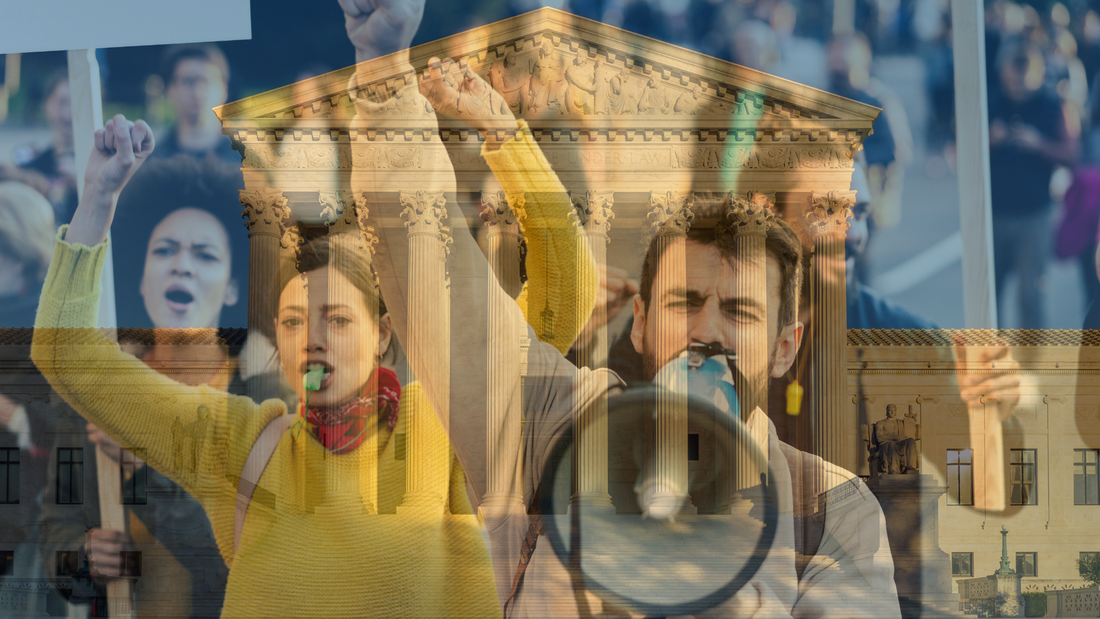
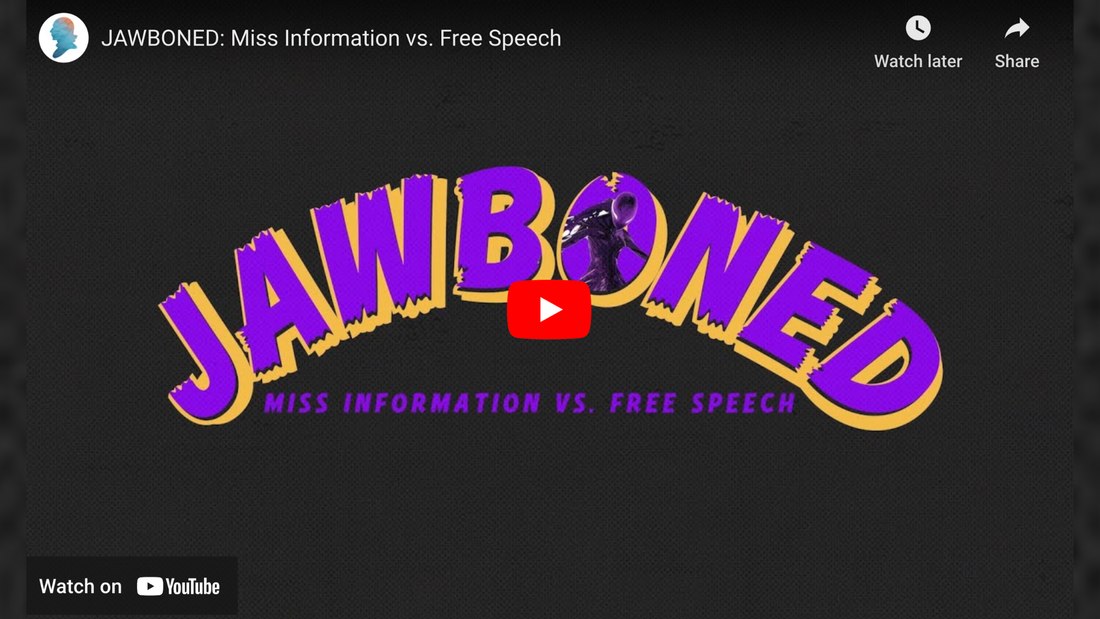
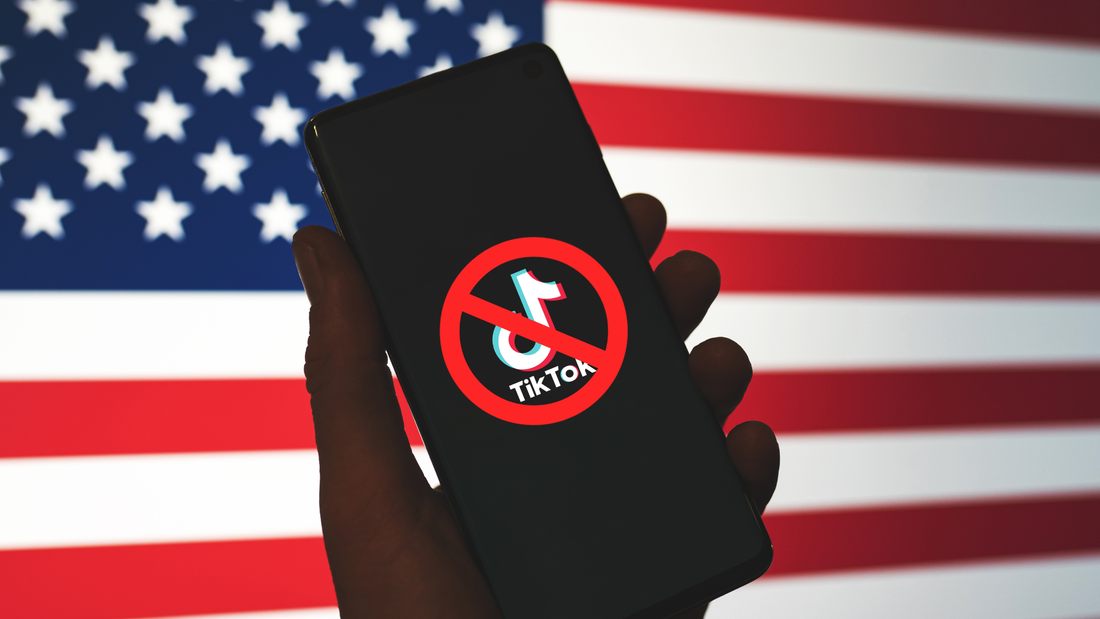
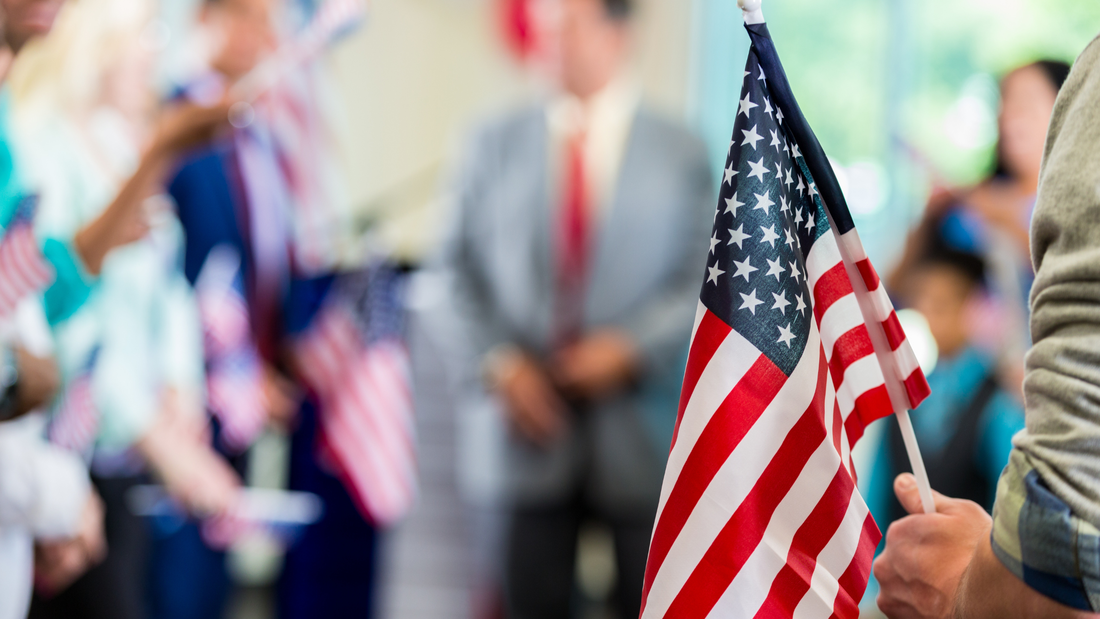
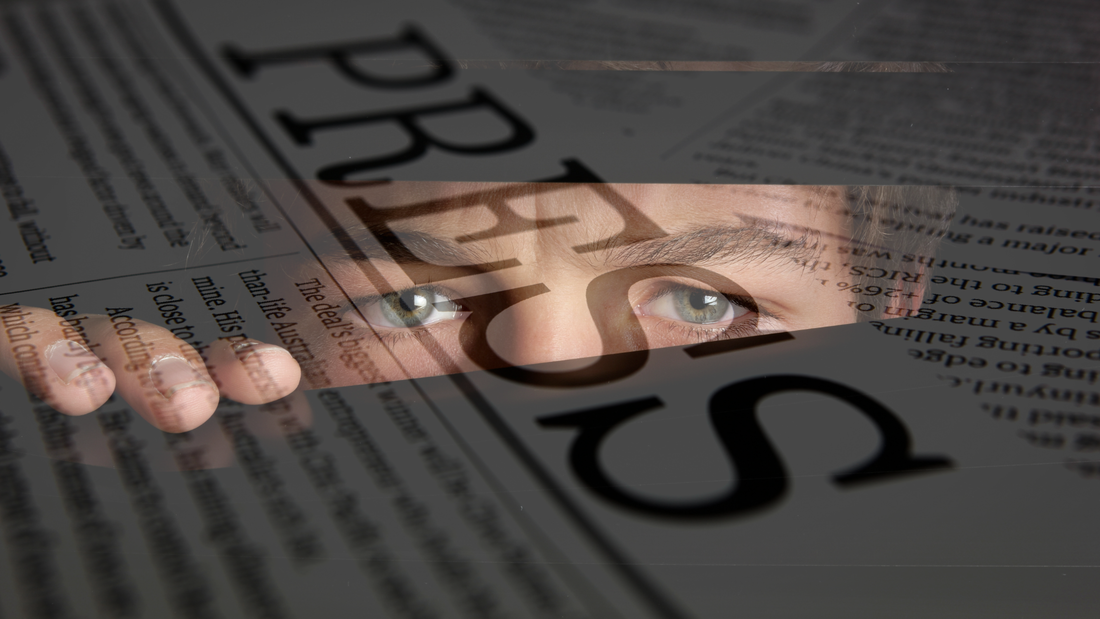


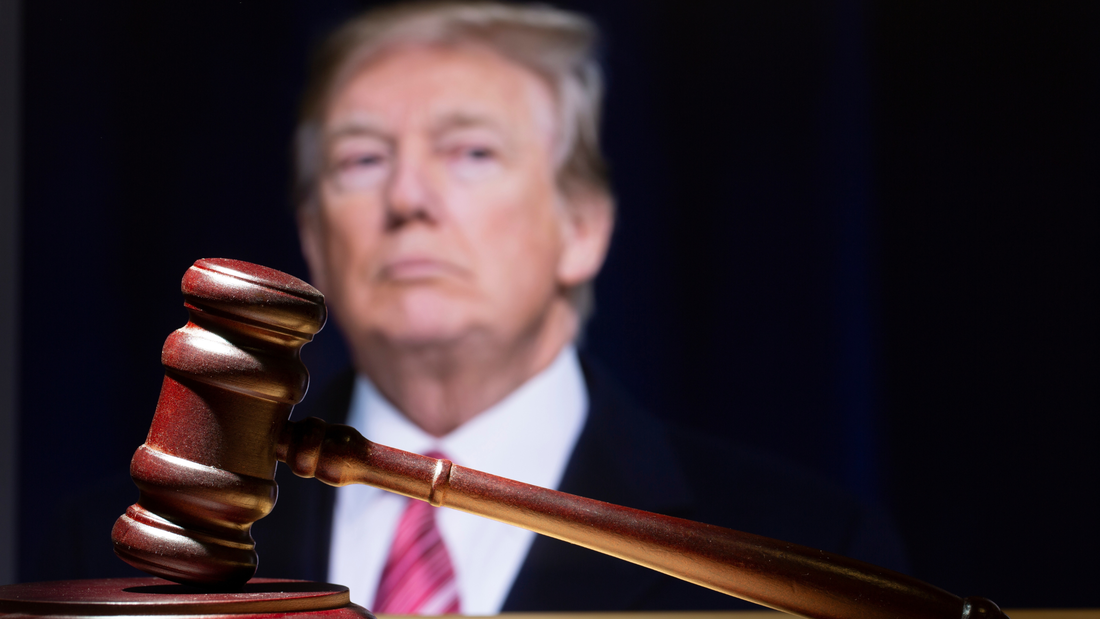
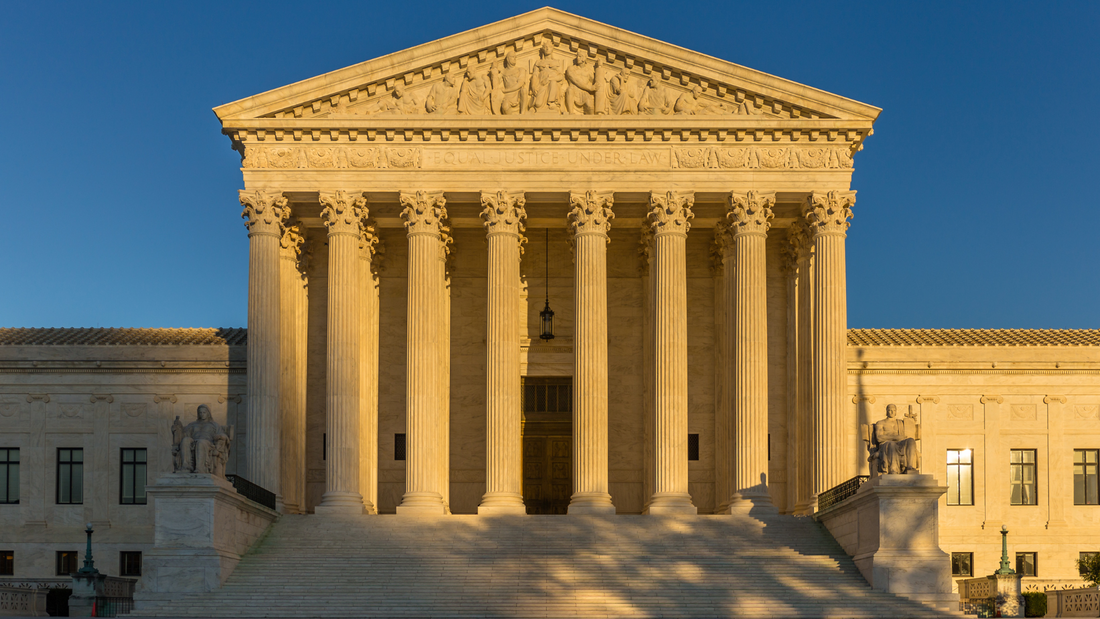
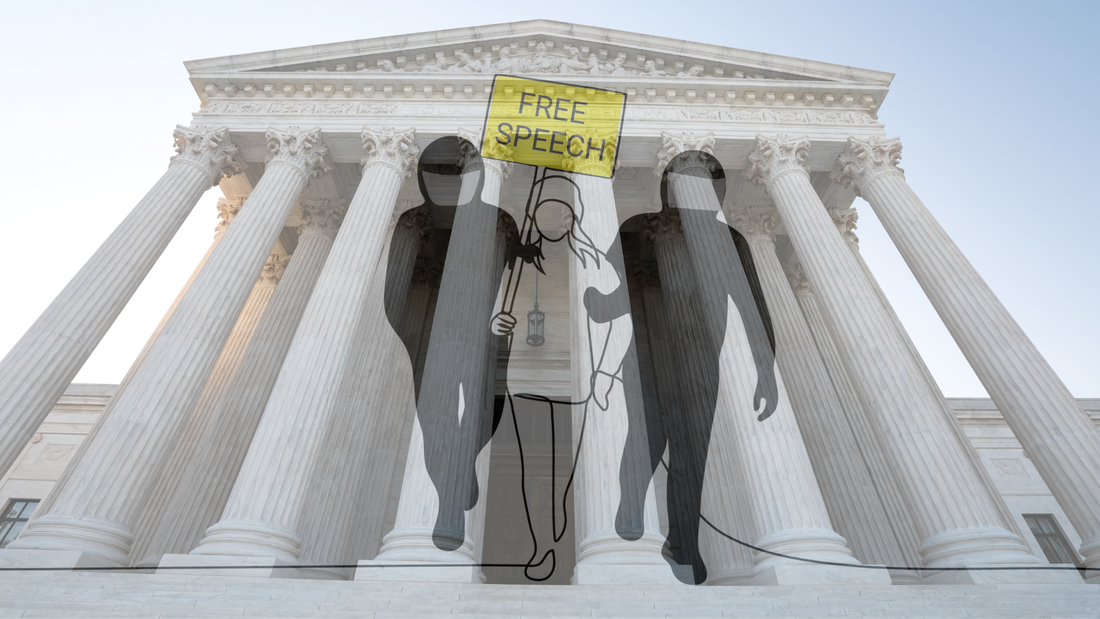

 RSS Feed
RSS Feed